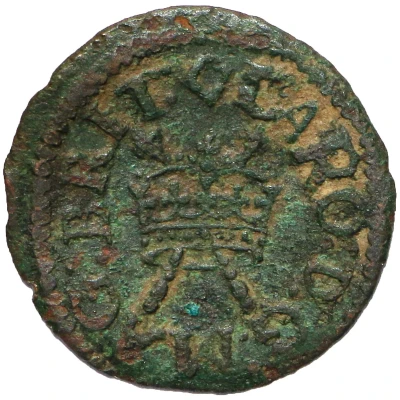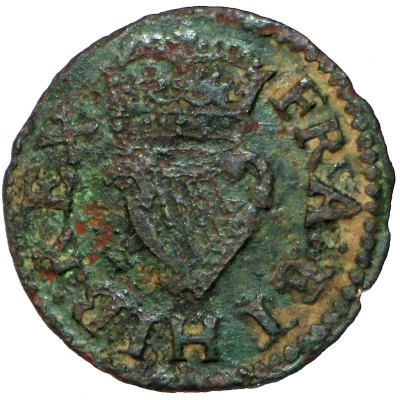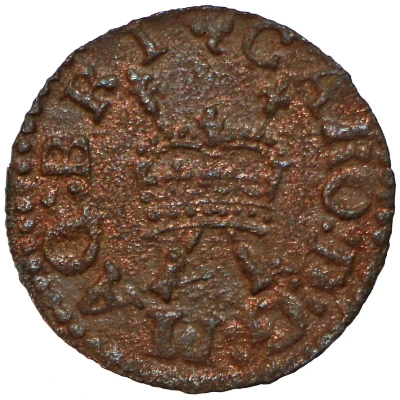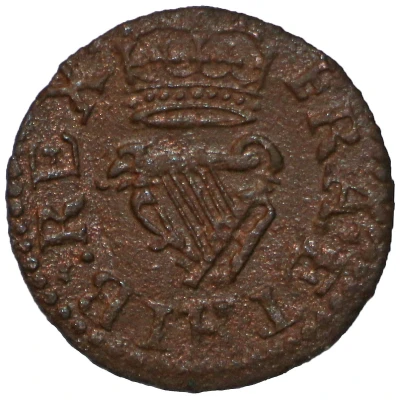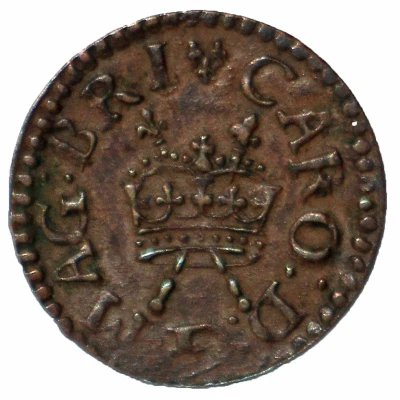
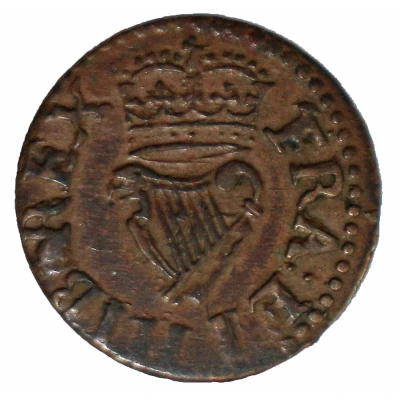

1 Farthing - Charles I Richmond issue; type 2 ND
| Copper | 0.48 g | 16 mm |
| Issuer | England (United Kingdom, British Overseas Territories and Crown Dependencies) |
|---|---|
| King | Charles I (1625-1649) |
| Type | Token |
| Years | 1625-1634 |
| Value | 1 Farthing (1⁄960) |
| Currency | Pound sterling (1158-1970) |
| Composition | Copper |
| Weight | 0.48 g |
| Diameter | 16 mm |
| Shape | Round |
| Orientation | Medal alignment ↑↑ |
| Demonetized | Yes |
| Updated | 2024-10-08 |
| Numista | N#227252 |
|---|---|
| Rarity index | 86% |
Reverse
Eagle-headed, 6-string harp below single-arch crown, legend around.
Note: colon stops
Script: Latin
Lettering: FRA ET HIB REX
Translation: France and Ireland, King (continuation of obverse legend)
Comment
House of Stuart (1603-49), Charles I (1625-49), Richmond farthing type 2 (occasionally type 1c) BMC 134-194CARO, colon stops, mintmark on obverse only. Many mintmark varieties exist.
In 1623, towards the end of the reign of James I, Ludovic, Duke of Lennox, acquired the additional title of the Duke of Richmond but died a few months later without an heir. The farthing patent passed to his widow, Frances Stewart, Dowager Duchess of Richmond and Lennox, who had as partner in it, Sir Francis Crane. This patent was confirmed to them on 30th May, 1625, by Charles I upon his accession. Thus, the first ‘farthing’ issues of Charles I are consequently called Richmonds.
Interesting fact
One interesting fact about the Token 1 Farthing - Charles I (Richmond issue; type 2) ND (1625-1634) from England (United Kingdom, British Overseas Territories and Crown Dependencies) made of Copper weighing 0.48 g is that it was issued during a time of great economic turmoil in England. The coin was minted during the reign of Charles I, who faced significant financial challenges due to the cost of his military campaigns and the decline of the English economy. As a result, the coin was made of copper, which was a less valuable metal than the silver or gold coins that were previously used. Despite its lower value, the Token 1 Farthing was still widely used and remained a popular form of currency for many years.
